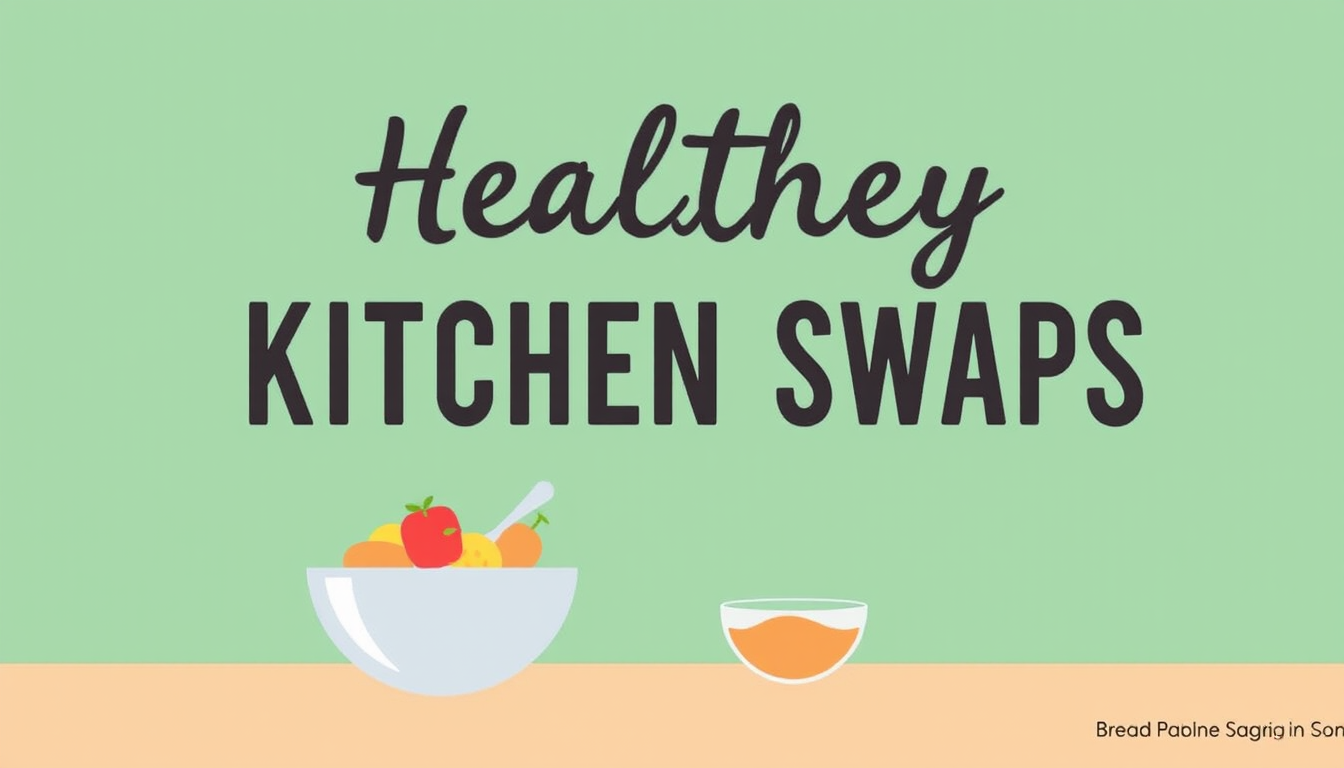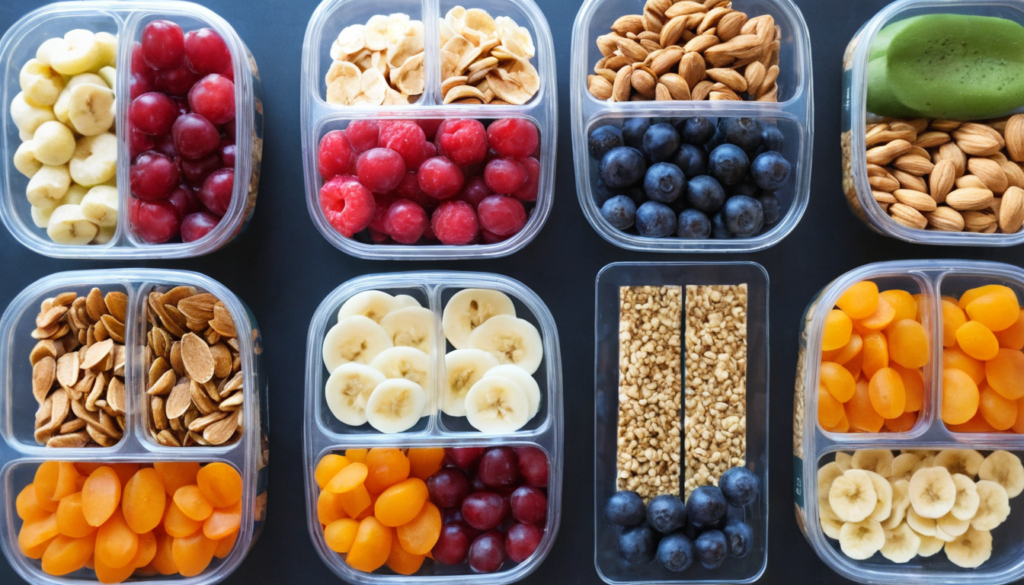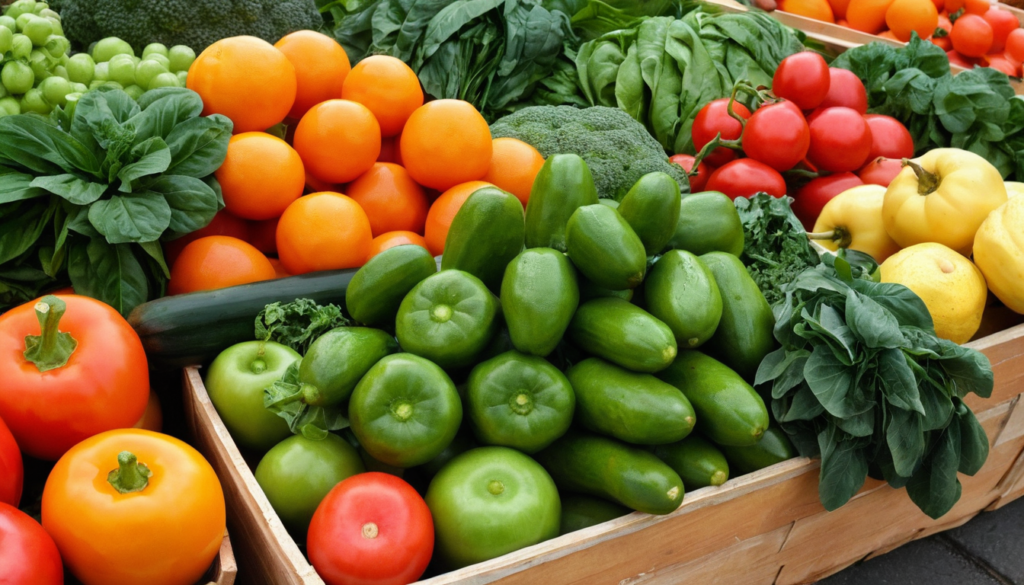Transforming your kitchen into a healthier space is easier than you might think. The first step is often to simply swap out some of the less healthy ingredients for more natural, nutrient-rich options. These changes, while small individually, can lead to significant health improvements over time. Below are ten easy swaps you can make in your kitchen to promote a healthier lifestyle for you and your family.
1. White Flour to Whole Wheat Flour
When baking or cooking, opt for whole wheat flour instead of white flour. Whole wheat flour retains the bran, germ, and endosperm, providing more fiber and nutrients than its white counterpart.
2. Sugar to Natural Sweeteners
Refined sugar can lead to various health issues, including obesity and diabetes. Consider using natural sweeteners like honey, maple syrup, or stevia, which offer sweetness with added nutrients.
3. Vegetable Oil to Olive Oil
Many cooking oils are refined and stripped of nutrients. Switching to extra virgin olive oil can enhance the flavor of your dishes while providing healthy monounsaturated fats and antioxidants.
4. Processed Snacks to Nuts and Seeds
Instead of reaching for bags of chips or cookies, keep healthy snacks like almonds, walnuts, flaxseeds, or chia seeds on hand. These options are packed with healthy fats, protein, and essential nutrients.
5. Soda to Sparkling Water
Soda is laden with sugar and empty calories. Replace it with sparkling water infused with fresh fruits or herbs for a refreshing and healthier beverage option.
6. Ice Cream to Greek Yogurt
Traditional ice cream is high in sugar and saturated fats. Greek yogurt, particularly the plain variety, is lower in sugar and higher in protein. You can add your choice of fruit and a drizzle of honey for sweetness.
7. Canned Vegetables to Fresh or Frozen Vegetables
Canned vegetables often contain added sodium and preservatives. Whenever possible, choose fresh or frozen vegetables, as they are generally more nutritious and free from unnecessary additives.
8. Processed Meat to Lean Proteins
Processed meats like sausages and hot dogs can have negative health impacts. Opt for lean proteins such as turkey, chicken breast, or fish to maintain a healthy diet.
9. Conventional Dairy to Plant-Based Alternatives
Consider switching from conventional dairy products to plant-based alternatives. Options like almond milk, coconut yogurt, and cashew cheese are not only delicious but also cater to lactose intolerance or dairy-free lifestyles.
10. Store-Bought Sauces to Homemade Versions
Many store-bought sauces are full of preservatives, sugars, and unhealthy fats. Making your own sauces at home allows you to control the ingredients and craft healthier versions of your favorites.
Making the Transition
Adopting these swaps may take time, and it’s important to approach these changes gradually. Start with one or two swaps at a time, and over the weeks, increase as you feel more comfortable. This will allow you to adjust your palette and discover new favorite ingredients.
Benefits of Embracing Natural Ingredients
- Improved overall health and wellness
- Increased energy levels
- Better digestion due to higher fiber intake
- Enhanced mood and mental clarity
- Weight management and reduced risk of chronic diseases
FAQs
What are some other healthy alternatives I can consider?
In addition to the swaps mentioned above, you may also want to consider using quinoa instead of rice, swapping white potatoes for sweet potatoes, and using avocado as a substitute for butter in recipes.
Are natural sweeteners healthier than refined sugar?
Yes, natural sweeteners tend to have more nutrients and antioxidants, and they often have a lower glycemic index compared to refined sugar, which can help reduce spikes in blood sugar levels.
How can I ensure I’m choosing the best oils for cooking?
Look for oils that are cold-pressed or extra virgin, as these retain more nutrients. Avoid oils that are highly processed or partially hydrogenated, as they may contain trans fats.
Will these swaps really make a difference in my health?
Absolutely! Even small changes to your diet can accumulate over time, leading to improved health, better weight management, and enhanced wellbeing.
Conclusion
Embracing natural ingredients in your kitchen doesn’t have to be overwhelming. By making these ten simple swaps, you can start on the path to a healthier lifestyle. Remember, every small change counts, and these adjustments will not only enrich your meals but also positively impact your overall health.



